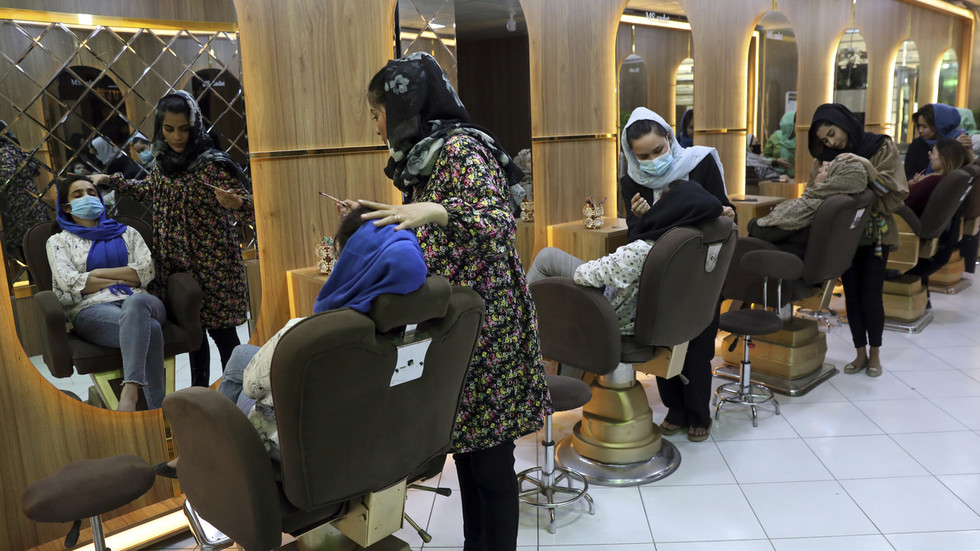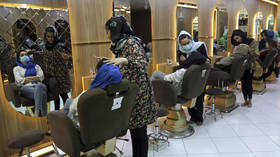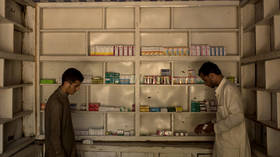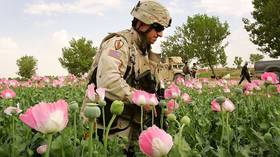
The morality ministry set a deadline for all hair and nail parlors in Afghanistan to shut their doors to women

FILE PHOTO: Beauticians put makeup on customers at a beauty salon in Kabul, April 25, 2021 © AP / Rahmat Gul
The Taliban has issued a one-month closure notice to all beauty salons across the country as the Islamist group has been gradually tightening its grip on power, while bringing life in Afghanistan into line with the strict religious norms the it follows.
“The deadline for the closing of beauty parlors for women is one month,” a spokesperson for the Ministry for the Prevention of Vice and Propagation of Virtue, Mohammad Sadiq Akif, told Reuters on Tuesday.
The directive, dated June 24, was reportedly “based on verbal instruction from the supreme leader” Mullah Hibatullah Akhundzada, but authorities did not explain the exact reasoning. The spokesman told AFP that “once they are closed then we will share the reason with the media.”

The United Nations Assistance Mission in Afghanistan (UNAMA) urged authorities to revoke the ban, saying that this “new restriction on women’s rights will impact negatively on the economy.”
Since seizing control of Afghanistan amid the botched withdrawal of US forces in August 2021, the Taliban has introduced a number of controversial restrictions, prohibiting girls from attending school beyond the sixth grade and banning women from many jobs and public spaces. Women are required to cover their faces in public and are advised to stay home except in cases of necessity. They also must have a male chaperone on long trips.

The Taliban also cracked down on press freedom, banning multiple Western outlets including the US government-controlled Voice of America (VOA) and Radio Free Europe/Radio Liberty (RFE/RL), as well as some programming by German state-sponsored broadcaster Deutsche Welle and the BBC, citing their alleged bias.
Among its less controversial restrictions, the Taliban outlawed the cultivation of poppy and has reportedly accomplished in one year what America’s ‘war on drugs’ failed to pull off in five decades. The UK Telegraph newspaper called the move “the most successful counter-narcotics effort in human history,” after poppy production dropped by an estimated 80% in the past year.




